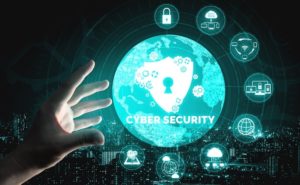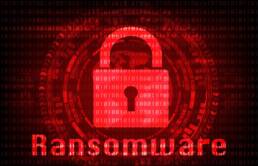Despite the strong security firewalls and strict regulatory, cyberthreats continue to place the confidential data records and networks at high-security risk, resulting in trillions worth business losses. Now, in the wake of ‘remote working’ as a result of coronavirus lockdown, cybersecurity is demanding a special mention. Over the last weekend, renowned IT service provider ‘Cognizant‘ reported a maze ransomware attack that affected the company and its customers too.
“Cognizant can confirm that a security incident involving our internal systems, and causing service disruptions for some of our clients, is the result of a Maze ransomware attack,” the company said in a statement.
“Our internal security teams, supplemented by leading cyber defense firms, are actively taking steps to contain this incident. Cognizant has also engaged with the appropriate law enforcement authorities,” the company added further.
The company has also notified its affected clients and provided them with required compromise indicators and other technical information.
“Although we are in the early stages of assessing this incident, the attack has caused and may continue to cause an interruption in parts of our business and may result in a loss of revenue and incremental costs that may adversely impact our financial results,” the company said in a statement.
Ahead of this attack, a major IT player has supposedly signed a USD 200,000 billion deal with an unknown hacker for gaining access to perform the act.
[ALSO READ: Cybersecurity for SMBs: Importance, Challenges and Tips]
What Experts Say?

A New Zealand-based maker of anti-virus software Brett Callow says ransomware attacks were just encrypting the victim’s data in the past.
Now, they have advanced to the level of stealing the copy of data as a whole.
“That trend was started by Maze at the tail end of last year, but multiple other groups have now hopped on that bandwagon. If the victims do not pay, they publish the data,” adds Callow.
He further explains that the companies are left with no good option after such attacks.
If the companies don’t pay the demanded amounts, the attackers will publish off their data. If they pay, they will just make a promise that their data will not be used.
“But why would a criminal enterprise ever delete data that they may be able to monetize?” says Callow.
In such incidents, companies not only fear of their sensitive information getting revealed, but they are also worried about government fines if the exposed records contain Personally Identifiable Information (PII).
“Strong backups are not sufficient to ignore this threat anymore. The costs of not paying the ransom have just gone up 10x to possible 100x,” says another cybersecurity expert.
As the sources say, the FBI has informed all companies about the possible ransomware attacks in a private message early December 2019.
In Conclusion
The ransomware attacks have increased ever since the companies have asked their employees to work from home in view of the coronavirus lockdown.
So, it’s time to review your IT security posture. A strong information security posture may be the one supported by effective compliance policies, strong regulatory, robust identity and access management, data governance and more.
Looking for Support? Contact Us!
Related Cybersecurity Stories:

